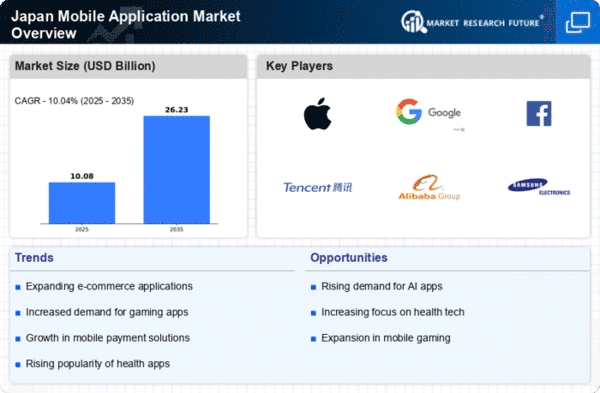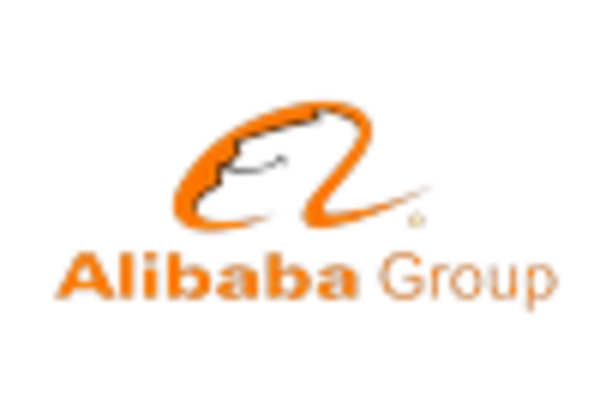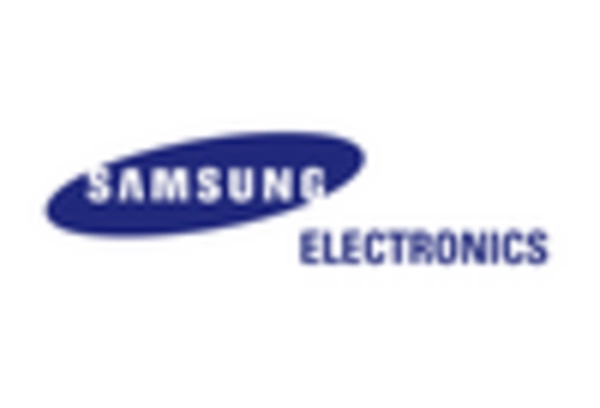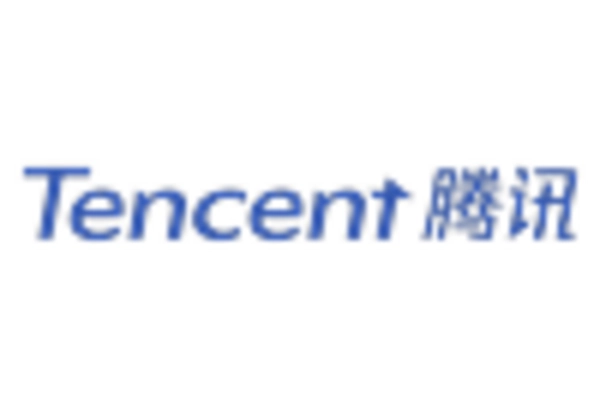Expansion of 5G Technology
The rollout of 5G technology in Japan significantly impacts the mobile application market. With faster data speeds and lower latency, 5G enables developers to create more sophisticated applications that require real-time data processing. As of November 2025, over 50% of mobile users in Japan have access to 5G networks, which enhances the user experience and encourages the adoption of data-intensive applications. This technological advancement is likely to stimulate growth in sectors such as gaming, augmented reality, and video streaming within the mobile application market. Consequently, the demand for high-quality applications is expected to rise, further propelling market expansion.
Rising Smartphone Penetration
The mobile application market in Japan experiences a notable boost due to the increasing penetration of smartphones. As of 2025, approximately 80% of the population owns a smartphone, which facilitates access to various applications. This widespread adoption encourages developers to create innovative solutions tailored to user needs. The mobile application market benefits from this trend, as more users engage with apps for communication, entertainment, and productivity. Furthermore, the growing number of smartphone users is likely to drive demand for mobile applications, leading to a projected market growth rate of around 10% annually. This trend indicates a robust ecosystem for app development, fostering competition and creativity within the mobile application market.
Emergence of Subscription-Based Models
The mobile application market in Japan is witnessing a shift towards subscription-based models. This trend allows developers to generate consistent revenue streams while providing users with ongoing access to premium content and features. As of November 2025, it is estimated that subscription-based applications will account for around 30% of total app revenue in the mobile application market. This model appears to resonate well with consumers, as it often includes regular updates and exclusive content. Consequently, developers are likely to invest more in creating high-quality applications that justify subscription fees, thereby fostering a competitive landscape within the mobile application market.
Growing Interest in Health and Fitness Apps
The mobile application market in Japan is experiencing a growing interest in health and fitness applications. As individuals become more health-conscious, there is an increasing demand for apps that promote wellness, exercise, and nutrition tracking. In 2025, it is estimated that the health and fitness app segment will account for approximately 15% of the total mobile application market revenue. This trend suggests that developers are focusing on creating innovative solutions that cater to the health needs of users. The mobile application market is likely to benefit from partnerships with healthcare providers and fitness organizations, further enhancing the credibility and reach of these applications.
Increased Demand for E-commerce Applications
The mobile application market in Japan is witnessing a surge in demand for e-commerce applications. As consumers increasingly prefer online shopping, businesses are investing in mobile platforms to enhance customer engagement. In 2025, e-commerce sales in Japan are projected to reach ¥20 trillion, with a significant portion attributed to mobile transactions. This trend indicates that the mobile application market is adapting to consumer preferences, leading to the development of user-friendly shopping apps. Additionally, the integration of features such as mobile payment solutions and personalized recommendations is likely to enhance user experience, further driving the growth of e-commerce applications.
















